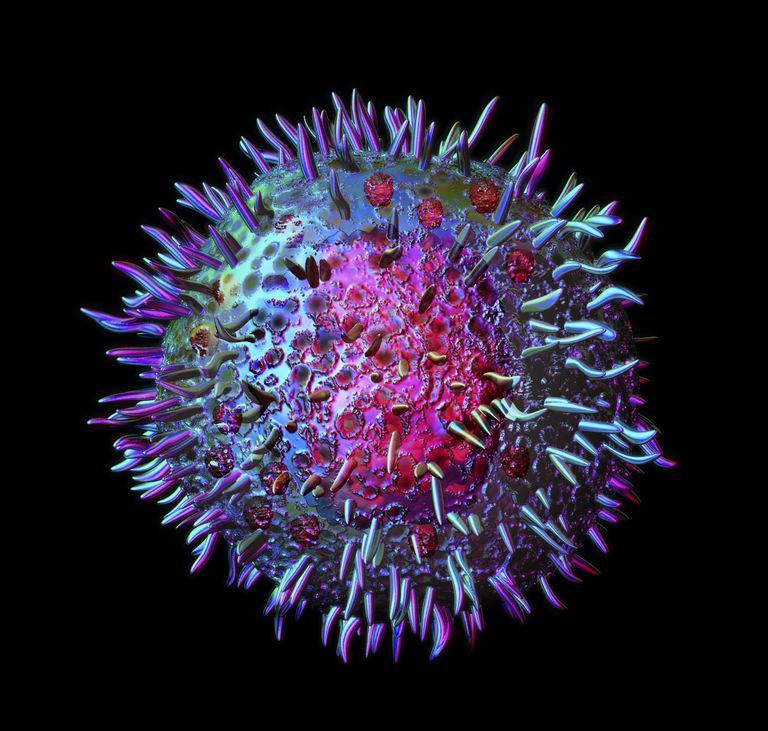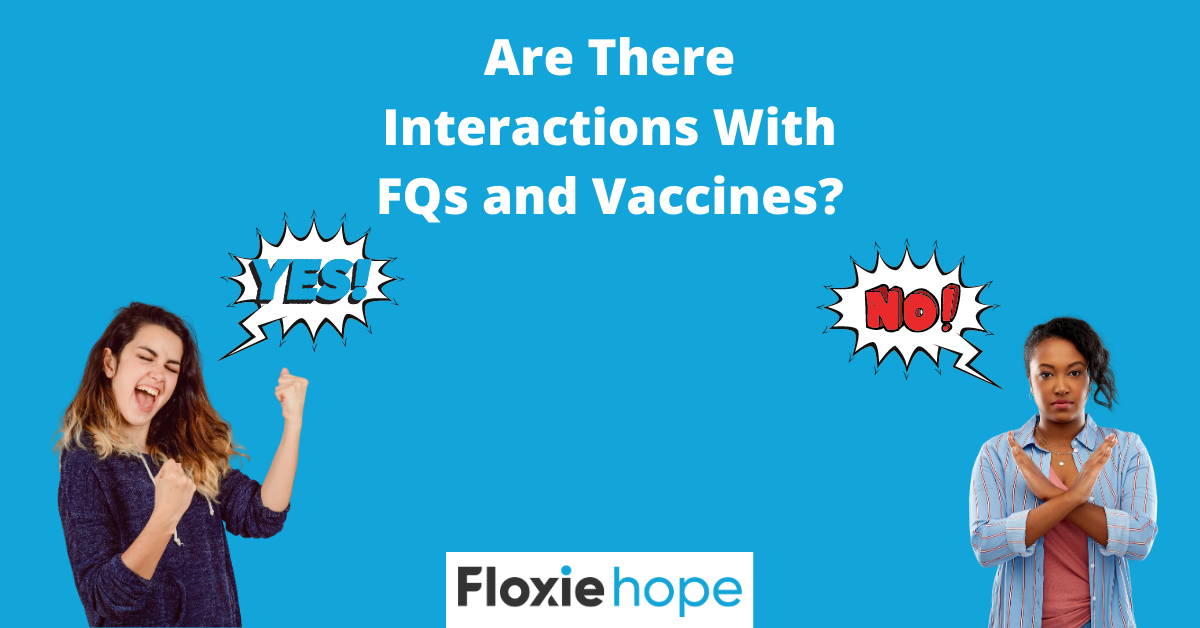So should you be worried?
I know getting any medical treatment or vaccine can be worrisome because of the side effects. But is there a link between Fluoroquinolones and the Covid vaccine? Especially after suffering a reaction from the commonly prescribed Fluoroquinolone (FQ) antibiotics. Though feeling this way is normal however I want to look at some of the effects of vaccines and if they may cause a reaction in your body producing more side effects.
Before going into the details and the science I want to preface this article with a blanket statement that this is not medical advice or this blog article should not be used as a determining factor of whether you should or should not get any medical treatment. All I am trying to do here is give you some information to make an informed decision with all relevant information from your doctor and the CDC.

The Mast Cell Dilemma
If you have never heard of Mast Cell or do not know what it means, that is fine and I am going to explain what it is. Mast cells are cells found in connective tissue throughout our bodies as part of our immune system. Mast cells are particularly prominent in tissues of our bodies that interact with our dirty world outside the body, they are prominent in the lungs and digestive tract too. Mast cells can also be found in the organs and tissue of our circulatory and nervous systems. Mast cells play an important role in protecting our health by providing a line of defense against invaders and pathogens. Check out the blog article on Floxie Hope about it. See what they look like in the photo here.
First I want to discuss the reason why Mast Cells get triggered after FQ exposure. I understand that we can feel the effects of these drugs in our tendons, nerves and energy however our Mast Cells have a part to play here as well. Fluoroquinonlones cause immune reactions you may not know until its to late and here are a few reasons why. Drug‐induced allergies can be triggered by direct drug stimulation of mast cells or basophils, leading to the degranulation of mast cells and the release of active inflammatory mediators, such as histamine. Immune cells turn on in a time of stress and they are supposed to, that is how we are designed. The problem is when Mast Cells turn on and do not shut off, that is an issue.
From the Archives of Toxicology’s article, Differential response of mast cells separated from various organs and basophils of dogs to the fluoroquinolone antimicrobial levofloxacin, “Histamine releases induced by the fluoroquinolone antimicrobial levofloxacin (LVFX) were investigated using mast cells separated from various organs and peripheral basophils of dogs, being the most susceptible species to quinolone derivatives, in both in vivo and in vitro systems. (4)
Pfizer’s and Moderna’s Covid vaccines use lipid nanoparticle encapsulated technology. There has some mounting postulation and concerns that there may be a mechanism whereas these nanoparticles can incite an allergic reaction ie “Mast Cell” activation (1). At the moment there is study to determine if the vaccine itself or the delivery is causing reactions leaving those at risk for an anaphylactic type response from the Mast Cell degranulation. Did the FDA make these drug manufacturers study this or the downstream effects? How do these vaccines work with those affected by Mast Cell issues before taking the vaccine? That is the ultimate question right now and I feel strongly about getting studies on this topic.
The PEG issue
Polyethylene glycol, referred to as PEG, is used as an inactive ingredient in the pharmaceutical industry as a solvent, plasticizer, surfactant, ointments, and suppository base, and tablet and capsule lubricant. PEG has low toxicity with systemic absorption less than 0.5%. (2) Conjugation of polyethylene glycols (PEGs) to proteins or drug delivery nano-systems is a widely accepted use to increase the therapeutic bioavailability of nano-biopharmaceuticals. These drugs and nano agents are often immunogenic, triggering the rise of anti-drug antibodies (ADAs).
There are many studies showing an immune response to PEG. However there may be little know correlation to these vaccines and PEG initiating Mast Cell reaction. A recent study led by allergists at Massachusetts General Hospital notes that an FDA review between 2005 and 2017 showed an average of just four cases of PEG anaphylaxis per year. The Mass General study says there are many formulations of PEG, and the component used in the mRNA vaccines “is different from the PEG used most commonly in other health-care products.” For the moment the PEG additive concerns seem to show that there are only a number of reactions to this ingredient. Although there is no study showing a correlation of vaccine additives with Mast Cell issues taking either vaccine and seeing worsening Mast Cell issues.
ACAAI releases guidance related to risk of allergic reactions to Pfizer-BioNTech COVID-19 vaccine (3)
With the emergency use authorization of the Pfizer-BioNTech COVID-19 vaccine by the FDA on December 11, 2020, and distribution beginning today, the American College of Allergy, Asthma and Immunology COVID-19 Vaccine Task Force recommends the following guidance related to risk of an allergic reaction on vaccination for those who receive the vaccine. These recommendations are based on best knowledge to date but could change at any time, pending new information and further guidance from the FDA or CDC.
1.Allergic reactions to vaccines, in general, are rare with the incidence of anaphylaxis estimated at 1.31 in 1 million doses given.
2.Individuals with common allergies to medications, foods, inhalants, insects, and latex are no more likely than the general public to have an allergic reaction to the Pfizer-BioNTech COVID-19 vaccine. Those patients should be informed of the benefits of the vaccine versus its risks.
3.The Pfizer-BioNTech COVID-19 vaccine should be administered in a health care setting where anaphylaxis can be treated. All individuals must be observed for at least 20-30 minutes after injection to monitor for any adverse reaction. All anaphylactic reactions should be managed immediately, with epinephrine as the first line treatment.
4. The Pfizer-BioNTech COVID-19 vaccine should not be administered to individuals with a known history of a severe allergic reaction to polyethylene glycol as it is a component of this vaccine that is known to cause anaphylaxis.
5. Data related to risk in individuals with a history of allergic reactions to previous vaccinations and/or mast cell activation syndrome/idiopathic anaphylaxis is very limited and evolving. A decision to receive the Pfizer-BioNTech COVID-19 vaccine should be undertaken by you with your physician or other provider administering the vaccine using their professional judgment balancing the benefits and risks associated with taking the vaccine.
6. The Pfizer-BioNTech COVID-19 vaccine is not a live vaccine and it can be administered to immunocompromised patients. Physicians and other providers should inform such immunocompromised patients of the possibility of a diminished immune response to the vaccine. We do not know at this time if people with a weakened immune system will respond to the vaccine and be protected from COVID-19.
7. If you have questions related to the risk of an allergic reaction to the Pfizer-BioNTech COVID-19 vaccine, contact your local board-certified allergist/immunologist
Floxing, autoimmunity and vaccines
Your gut is your life force for keeping your body at homeostasis. Why you ask? Well
your stomach holds your immune system and guess what, that’s important. Your body is actually more bacteria than anything else. The gut or microbiome gets distressed and out of balance after any antibiotic because they kill off good and bad bacteria. Your stomach homeostasis will be compromised leaving your body to have an autoimmune response in some cases. This is noted with cases of leaky gut and irritable bowl syndrome (IBS).
So after taking FQs is your immune system altered? This is a valid question and for many I think the answer is yes. Here is a study on the effects to the immune system Fluoroquinolones, which perform their bactericidal effect by inhibiting DNA gyrase (a type II topoisomerase) (5), are known to interfere with certain immune functions. (5) FQs can leave your body in an altered
immune state and without correction your body could be in an autoimmune state.
Could vaccines cause an autoimmune disease? The hard facts are still out to the jury however
here are some important facts to consider. (6)
Hepatitis B vaccine increases risk of multiple sclerosis. (There does appear, in theory, to be a plausible concern that the vaccine could react against the myelin in the brain and spinal cord; however, there is no evidence of an actual association.)
A specific type of influenza vaccine increases risk of Guillain-Barré syndrome. (There is good evidence for an association in this case, but only for a type of swine flu vaccine used in 1976-77.)
Use of many more pediatric vaccines has caused an increased risk of type 1 diabetes. (The balance of scientific evidence shows no relationship.)
If there is a link between specific vaccines and specific autoimmune disorders, the biological basis remains a mystery. There needs to be more epidemiological studies on the topic to decipher if vaccines cause autoimmune reactions after administration. All I can say is that after my exposure to FQs I have had autoimmune like symptoms for years and all of them misdiagnosed and misunderstood. However there is really no correlation or long term study on that issue either which does not mean the issue is not real.
My Final Thoughts
I truly understand the importance of keeping your body healthy now more than ever. My life has been a rabbit hole of treatments, supplements, and not-so-quick fixes to get my health in order. With mounting concerns about getting vaccinated, I have come up with my top concerns about the vaccine and my choice to get it or not to get it.
1. What is the long-term effects of mRNA and cells?
2. My FQ mast cell histamine issues and the possibility of a vaccine triggering that?
3. My autoimmune symptoms (mostly gut-related) and how the vaccine will affect that?
After reviewing hundreds of website data on the efficacy and the percentages of reactions they seem pretty safe on paper. That is great for the mass population that will take them to keep them safe from Covid or at least the current strain. That leaves me between a rock and a hard place though and a tough decision I am sure you also will have to make around the vaccine. Ultimately I will have to keep watching for peer-reviewed articles on the topic in hopes that a study will be done on those with underlying issues and the safety of vaccination. The choice is yours but please do your research and make sure to ask your doctor as many questions as you need to feel comfortable with whatever decision you make.
Please comment below with your thought and are you getting the vaccine if so which one?














… [Trackback]
[…] There you will find 4075 more Info to that Topic: floxiehope.com/fluoroquinolones-and-the-covid-vaccine/ […]
… [Trackback]
[…] Read More on to that Topic: floxiehope.com/fluoroquinolones-and-the-covid-vaccine/ […]
… [Trackback]
[…] Info to that Topic: floxiehope.com/fluoroquinolones-and-the-covid-vaccine/ […]
… [Trackback]
[…] Info to that Topic: floxiehope.com/fluoroquinolones-and-the-covid-vaccine/ […]
… [Trackback]
[…] Find More on on that Topic: floxiehope.com/fluoroquinolones-and-the-covid-vaccine/ […]
… [Trackback]
[…] Read More on on that Topic: floxiehope.com/fluoroquinolones-and-the-covid-vaccine/ […]
… [Trackback]
[…] Information on that Topic: floxiehope.com/fluoroquinolones-and-the-covid-vaccine/ […]
… [Trackback]
[…] Read More Info here to that Topic: floxiehope.com/fluoroquinolones-and-the-covid-vaccine/ […]
… [Trackback]
[…] Here you will find 57793 more Info on that Topic: floxiehope.com/fluoroquinolones-and-the-covid-vaccine/ […]
… [Trackback]
[…] Find More Info here to that Topic: floxiehope.com/fluoroquinolones-and-the-covid-vaccine/ […]
… [Trackback]
[…] Read More to that Topic: floxiehope.com/fluoroquinolones-and-the-covid-vaccine/ […]
… [Trackback]
[…] Find More on to that Topic: floxiehope.com/fluoroquinolones-and-the-covid-vaccine/ […]